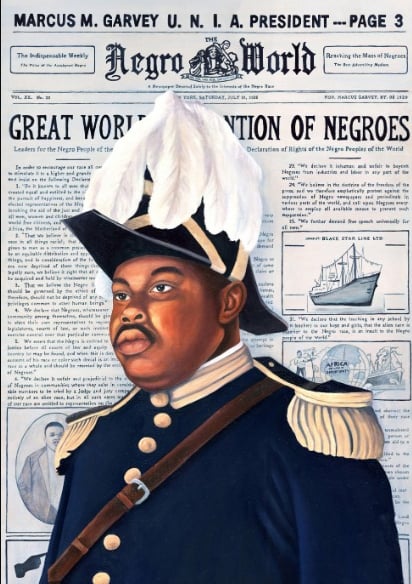Marcus Garvey: The Prophet Who Shaped Rastafari Thought
Discover the profound impact of Marcus Garvey on the Rastafari movement. From his prophetic vision of a crowned African king to his philosophy of Black pride, unity, and repatriation, explore how Garvey’s teachings laid the foundation for Rastafari beliefs and continue to inspire global consciousness.
Adowan Selassie
2/21/20252 min read


The Role of Marcus Garvey in Shaping Rastafari Thought
Marcus Garvey, a Jamaican-born activist and orator, played a pivotal role in shaping the foundations of Rastafari thought. His influence on this spiritual movement extends far beyond his lifetime, leaving an indelible mark on Rastafari philosophy, symbolism, and cultural identity.
Prophet and Visionary
Rastafarians regard Marcus Garvey as a prophet, often comparing him to John the Baptist who foretold Christ's coming. His famous prophecy, "Look to Africa for the crowning of a black king; he shall be the Redeemer," is seen as a pivotal moment in Rastafari history. When Ras Tafari Makonnen was crowned Emperor of Ethiopia in 1930, taking the name Haile Selassie I, many interpreted this as the fulfillment of Garvey's prophecy.
Philosophical Foundations
Garvey's philosophy of Black pride, African redemption, and cultural unity resonated deeply with the early Rastafari movement. His vision included:
Political and Economic Independence: Advocating for self-reliance among people of African descent.
Cultural Pride: Encouraging a strong sense of identity and heritage.
Repatriation: Promoting the idea of returning to Africa as a means of liberation.
These ideas became central tenets of Rastafari thought, shaping their worldview and spiritual practices.
Symbolism and Identity
The influence of Garvey's movement on Rastafari symbolism is evident in their adoption of the red, black, and green colors, originally used by Garvey's Universal Negro Improvement Association (UNIA). These colors hold deep significance in Rastafari culture:
Red: Represents the blood shed by martyrs.
Black: Symbolizes the skin color of people of African descent.
Green: Represents the land of Africa.
Global Black Consciousness
Garvey's work in establishing the UNIA and the Negro World newspaper helped inform Jamaicans and the wider Black community about pan-African issues. This global perspective influenced Rastafari's internationalist outlook and their emphasis on African unity and repatriation.
Spiritual Legacy
While Garvey himself was not a Rastafarian, his ideas and prophecies became integral to Rastafari spirituality. Some Rastafarians even consider Garvey part of their Trinity, second only to Haile Selassie in importance. His teachings continue to be expressed through reggae music, a powerful medium for spreading Rastafari messages globally.
Conclusion
Marcus Garvey's role in shaping Rastafari thought cannot be overstated. His prophecies, philosophy of Black empowerment, and vision of African redemption provided the fertile ground from which Rastafari grew. Today, Garvey's influence continues to resonate within Rastafari communities worldwide, cementing his status as a key figure in the movement's history and ongoing evolution.
Unity
Empowering Rastafari through community and collaboration.
Culture
Growth
info@rastafariworld.org
Ghana:
Antigua & Barbuda:
USVI:
Jamaica:
Trinidad & Tobago:
United States:
United Kingdom:
Ras Tafari World © 2025. All rights reserved.
